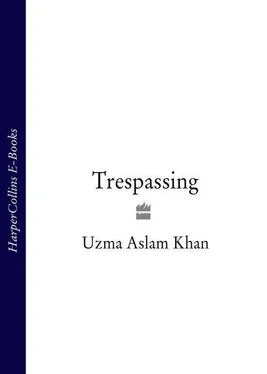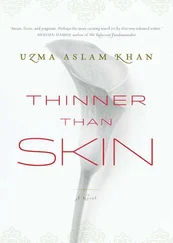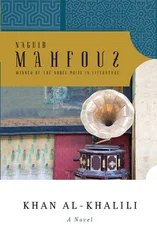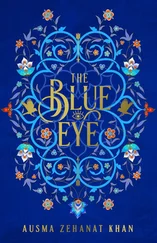Yet, Sumbul found it in her to care for Riffat, though surely in Sumbul’s eyes she lived like an empress. The contrast pained more because it highlighted the limits of each. What would it take to make Sumbul cross over to Riffat’s? What would it have taken for Riffat to cross over to Shafqat’s, or for him to leap past his own confines? He, who’d traveled and ruminated more than anyone she knew, could never overcome them.
They both knew that. She could see it when they met for the last time at the tomb. He was sagging, in body and spirit, as far as possible from the youth who’d run from protest march to student meeting. He was waiting, like everyone else, for a meteor to shatter the walls. Like so many political liberals of the time, he turned out privately orthodox. As if a thin membrane snagged his beliefs each time he stepped inside his home and he could do nothing but surrender because change was only in God’s hands. That was the principle he’d despised, but the one his life had followed. So he came to her, hoping for miracles. This one would be Dia.
‘I know she’s my child,’ he began.
They stood behind a pillar underneath a dome clustered with bats. Riffat shuddered. ‘You have no way of knowing.’
‘She has something of me. I do know. My eyes. My curiosity …’
‘Oh, and her mother can’t give her that?’
‘One simple test. As a doctor, I can arrange for it to be strictly confidential.’
‘You fool,’ she trembled. ‘You’re at your wits’ end for something to fill your vacuum. You didn’t let me in, you won’t let your wife in, obviously your son’s not enough. And your wife is barren. So now you want to disturb the peace I’ve built from ashes.’
‘If she’s my child I’ve a right to know,’ he retorted. ‘You can insult me all you want.’ He stepped forward, causing her to stumble back. ‘I have a right to stay in touch with her.’
She shut her eyes against the threat. He’d been watching Dia then. Stalking her in school? She didn’t want to know. And she didn’t want any more of the noise in the dome. The bats chittered as if in mockery, swinging above them like soothsayers. Riffat looked up at the net that had been strung across the dome’s breadth. She thought back to the day she’d learned of Shafqat’s marriage, and how, in her anger, she’d let her mother pick her groom. She’d regret that, always, and to make up for it, warned Dia often of the pernicious fatalism the nation was increasingly trapped in. It was a deadly cycle. Dia had to understand that in her own small but tenacious way, she could break it.
Shafqat stood a foot in front of her, less defiant than pathetic. She told him she’d slept with her husband the same night.
‘At your initiation? Because you suspected?’
She asked what he planned on doing if a test proved him right. Take a child away from the father she’d known all her life? ‘You think at fourteen, she’s going to jump into your arms? You haven’t seen Mansoor with her. They adore each other.’
He repeated, ‘If she’s my child, I should know it. I’ll fight for her if I have to.’
‘And of course, what she feels will have nothing to do with your decision?’
‘Not if she’s been brainwashed by you.’
‘Not if you can’t see past your own selfish needs.’
They argued till he said he’d kidnap Dia and draw the blood test whether she acquiesced or not, and that if he was right, he’d contest Mansoor in court.
She went home and wrestled with herself for weeks.
The period was already marred by anonymous phone calls in the middle of the night, presumably the work of the rejected dye-company, or some other severed thread in a business that was increasingly self-reliant. Between these anonymous calls were Shafqat’s. Riffat was high-strung, Mansoor irritable and confused; the boys fought, Dia cried to the cook Inam Gul.
At last Riffat decided to tell her husband everything.
He was almost three hundred pounds then, and it was as if she’d stuck a thorn into the mass. Whistling softly, he started to deflate.
His tiny black eyes seemed to look back over the last two decades of his life, dwelling especially on all he’d never said to her, from their first night together to this, their last. Or so she thought. Why had they never learned more of each other? They’d been married nineteen years while she and Shafqat had lived together barely four months. Yet, as Mansoor swore and wept, she could not go to him. She did not know what there was to go to.
Hours later, he stepped outside and climbed up the mulberry tree planted when Dia was born. While the neighbors gathered at the foot of the tree, he cried like a demented ape, and someone even rang the press. Riffat gathered her children to her and murmured, ‘I shouldn’t have told him.’
A frightened Dia asked to go to him.
‘No.’ She tightened her grip on the child, terrified of what Mansoor might say. The two had spent hours up in that tree, with pillows and sandalwood fans, where Dia transformed him from a mass of sedentary blubber to a tree-climbing, storytelling sprite. What would he tell Dia now?
She packed the children off to bed and the next morning, Mansoor was not in the house, and not in the tree. The car was gone. A chawkidaar in the neighborhood said he saw him driving off early in the morning.
‘Any idea where he went?’ she’d asked.
Nobody knew.
When he turned up dead at a village near the mouth of the Indus many days later, Shafqat left her alone. He said he’d continue to be tortured by this gift he’d never found, but he didn’t want to cause Riffat any more pain by claiming it. And he kept his word.
But what Sumbul had come to tell her was that he couldn’t keep away someone else.
Riffat sat up with a jolt. ‘Good God, how do you know about Shafqat?’
Sumbul bowed her head and admitted that Salaamat had seen them at the tomb, years ago.
An enraged Riffat demanded, ‘Can’t we have a moment to ourselves in this country? Does anyone do anything besides snoop around?’
Without meeting Riffat’s eye, Sumbul fanned her son with the edge of her dupatta.
Riffat shut her eyes. Her wrath was always misfired: at her husband, her daughter, and now her sweetest employee. Touching Sumbul’s hand, she muttered an apology.
Sumbul cleared her throat. ‘I’ve been wondering whether to tell you this. I think I should. It’s not just that Salaamat saw you with him. It’s that he’s been seeing Dia with someone else. Someone you wouldn’t want her to be with. His son.’
While Sumbul provided details, Riffat sat stunned. Then she whispered, ‘I cannot think. Please leave me.’
After Sumbul shut the door behind her, Riffat crawled into the bedroom where she and Mansoor had slept when the family spent weekends at the farm. She received solitude like a perfume rarely permitted, lavishing it on her skin till her temples gradually stilled. She looked up at the ceiling fan, at the tiny ring of metal in the center, and saw Dia cowering in the corner of a grimy open plot with Daanish. Fearing censure as she’d once feared it too, but also relishing his assurances, his touch. Did the boy have the father’s cloud-fracturing smile and his own delightful stories? Did he have strong limbs and a full-blooded scent? Did he give her what was hers to have without asking or did he keep that only for himself?
Riffat lay flat on the bed, arms akimbo. She stayed that way a long, long time.
Dia sat on the grass, her back against the mulberry tree where her father had sheltered the night before his death. In her lap was the book with the tales and pictures he’d loved. Around her drooped a leaden sky, nuzzling the gate where the armed guard paced.
Читать дальше
Конец ознакомительного отрывка
Купить книгу












